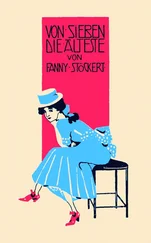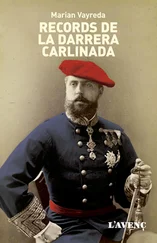Fanny Kemble - Records of a Girlhood
Здесь есть возможность читать онлайн «Fanny Kemble - Records of a Girlhood» — ознакомительный отрывок электронной книги совершенно бесплатно, а после прочтения отрывка купить полную версию. В некоторых случаях можно слушать аудио, скачать через торрент в формате fb2 и присутствует краткое содержание. Жанр: foreign_prose, foreign_antique, на английском языке. Описание произведения, (предисловие) а так же отзывы посетителей доступны на портале библиотеки ЛибКат.
- Название:Records of a Girlhood
- Автор:
- Жанр:
- Год:неизвестен
- ISBN:нет данных
- Рейтинг книги:4 / 5. Голосов: 1
-
Избранное:Добавить в избранное
- Отзывы:
-
Ваша оценка:
- 80
- 1
- 2
- 3
- 4
- 5
Records of a Girlhood: краткое содержание, описание и аннотация
Предлагаем к чтению аннотацию, описание, краткое содержание или предисловие (зависит от того, что написал сам автор книги «Records of a Girlhood»). Если вы не нашли необходимую информацию о книге — напишите в комментариях, мы постараемся отыскать её.
Records of a Girlhood — читать онлайн ознакомительный отрывок
Ниже представлен текст книги, разбитый по страницам. Система сохранения места последней прочитанной страницы, позволяет с удобством читать онлайн бесплатно книгу «Records of a Girlhood», без необходимости каждый раз заново искать на чём Вы остановились. Поставьте закладку, и сможете в любой момент перейти на страницу, на которой закончили чтение.
Интервал:
Закладка:
Nobody but Miss P– and myself dabbled in these classical depths, but nearly the whole school took dancing lessons, which were given us by two masters, an old and young Mr. Guillet, father and son: the former, a little dapper, dried-up, wizen-faced, beak-nosed old man, with a brown wig that fitted his head and face like a Welsh night-cap; who played the violin and stamped in time, and scolded and made faces at us when we were clumsy and awkward; the latter, a highly colored, beak-nosed young gentleman who squinted fearfully with magnificent black eyes, and had one shining, oily wave of blue-black hair, which, departing from above one ear, traversed his forehead in a smooth sweep, and ended in a frizzly breaker above the other. This gentleman showed us our steps, and gave us the examples of graceful ability of which his father was no longer capable. I remember a very comical scene at one of our dancing lessons, occasioned by the first appearance of a certain Miss –, who entered the room, to the general amazement, in full evening costume—a practice common, I believe, in some English schools where "dressing for dancing" prevails. We only put on light prunella slippers instead of our heavier morning shoes or boots, and a pair of gloves, as adequate preparation. Moreover, the French fashion for full dress, of that day, did not sanction the uncovering of the person usual in English evening attire.
CHAPTER IV
Great was the general surprise of the dancing class when this large, tall, handsome English girl, of about eighteen, entered the room in a rose-colored silk dress, with very low neck and very short sleeves, white satin shoes, and white kid gloves; her long auburn ringlets and ivory shoulders glancing in the ten o'clock morning sunlight with a sort of incongruous splendor, and her whole demeanor that of the most innocent and modest tranquillity.
Mademoiselle Descuillès shut her book to with a snap, and sat bolt upright and immovable, with eyes and mouth wide open. Young Mr. Guillet blushed purple, and old Mr. Guillet scraped a few interjections on his fiddle, and then, putting it down, took a resonant pinch of snuff, by way of restoring his scattered senses.
No observation was made, however, and the lesson proceeded, young Mr. Guillet turning scarlet each time either of his divergent orbs of vision encountered his serenely unconscious, full-dressed pupil; which certainly, considering that he was a member of the Grand Opera corps de ballet , was a curious instance of the purely conventional ideas of decency which custom makes one accept.
Whatever want of assiduity I may have betrayed in my other studies, there was no lack of zeal for my dancing lessons. I had a perfect passion for dancing, which long survived my school-days, and I am persuaded that my natural vocation was that of an opera dancer. Far into middle life I never saw beautiful dancing without a rapture of enthusiasm, and used to repeat from memory whole dances after seeing Duvernay or Ellsler, as persons with a good musical ear can repeat the airs of the opera first heard the night before. And I remember, during Ellsler's visit to America, when I had long left off dancing in society, being so transported with her execution of a Spanish dance called "El Jaleo de Xerxes," that I was detected by my cook, who came suddenly upon me in my store-room, in the midst of sugar, rice, tea, coffee, flour, etc., standing on the tips of my toes, with my arms above my head, in one of the attitudes I had most admired in that striking and picturesque performance. The woman withdrew in speechless amazement, and I alighted on my heels, feeling wonderfully foolish. How I thought I never should be able to leave off dancing! And so I thought of riding! and so I thought of singing! and could not imagine what life would be like when I could no more do these things. I was not wrong, perhaps, in thinking it would be difficult to leave them off: I had no conception how easily they would leave me off.
Varying our processions in the Champs Élysées were less formal excursions in the Jardin de Luxembourg; and as the picture-gallery in the palace was opened gratuitously on certain days of the week, we were allowed to wander through it, and form our taste for art among the samples of the modern French school of painting there collected: the pictures of David, Gérard, Girodet, etc., the Dido and Æneas, the Romulus and Tatius with the Sabine women interposing between them, Hippolytus before Theseus and Phædra, Atala being laid in her grave by her lover—compositions with which innumerable engravings have made England familiar—the theatrical conception and hard coloring and execution of which (compensated by masterly grouping and incomparable drawing) did not prevent their striking our uncritical eyes with delighted admiration, and making this expedition to the Luxembourg one of my favorite afternoon recreations. These pictures are now all in the gallery of the Louvre, illustrating the school of art of the consulate and early empire of Bonaparte.
Another favorite promenade of ours, and the one that I preferred even to the hero-worship of the Luxembourg, was the Parc Monceaux. This estate, the private property of the Orleans family, confiscated by Louis Napoleon, and converted into a whole new quartier of his new Paris, with splendid streets and houses, and an exquisite public flower-garden in the midst of them, was then a solitary and rather neglected Jardin Anglais (so called) or park, surrounded by high walls and entered by a small wicket, the porter of which required a permit of admission before allowing ingress to the domain. I never remember seeing a single creature but ourselves in the complete seclusion of this deserted pleasaunce. It had grass and fine trees and winding walks, and little brooks fed by springs that glimmered in cradles of moss-grown, antiquated rock-work; no flowers or semblance of cultivation, but a general air of solitude and wildness that recommended it especially to me, and recalled as little as possible the great, gay city which surrounded it.
My real holidays, however (for I did not go home during the three years I spent in Paris), were the rare and short visits my father paid me while I was at school. At all other seasons Paris might have been Patagonia for any thing I saw or heard or knew of its brilliant gayety and splendid variety. But during those holidays of his and mine, my enjoyment and his were equal, I verily believe, though probably not (as I then imagined) perfect. Pleasant days of joyous camaraderie and flanerie !—in which every thing, from being new to me, was almost as good as new to my indulgent companion: the Rue de Rivoli, the Tuileries, the Boulevard, the Palais Royal, the déjeuner à la fourchette at the Café Riche, the dinner in the small cabinet at the Trois Frères, or the Cadran Bleu, and the evening climax of the theater on the Boulevard, where Philippe, or Léontine Fay, or Poitier and Brunet, made a school of dramatic art of the small stages of the Porte St. Martin, the Variétés, and the Vaudeville.
My father's days in Paris, in which he escaped from the hard labor and heavy anxiety of his theatrical life of actor, manager, and proprietor, and I from the dull routine of school-room studies and school-ground recreations, were pleasant days to him, and golden ones in my girlish calendar. I remember seeing, with him, a piece called "Les deux Sergens," a sort of modern Damon and Pythias, in which the heroic friends are two French soldiers, and in which a celebrated actor of the name of Philippe performed the principal part. He was the predecessor and model of Frédéric Lemaître, who (himself infinitely superior to his pupil and copyist, Mr. Fechter, who, by a very feeble imitation of Lemaître's most remarkable parts, has achieved so much reputation) was not to be compared with Philippe in the sort of sentimental melodrama of which "Les deux Sergens" was a specimen.
Читать дальшеИнтервал:
Закладка:
Похожие книги на «Records of a Girlhood»
Представляем Вашему вниманию похожие книги на «Records of a Girlhood» списком для выбора. Мы отобрали схожую по названию и смыслу литературу в надежде предоставить читателям больше вариантов отыскать новые, интересные, ещё непрочитанные произведения.
Обсуждение, отзывы о книге «Records of a Girlhood» и просто собственные мнения читателей. Оставьте ваши комментарии, напишите, что Вы думаете о произведении, его смысле или главных героях. Укажите что конкретно понравилось, а что нет, и почему Вы так считаете.












